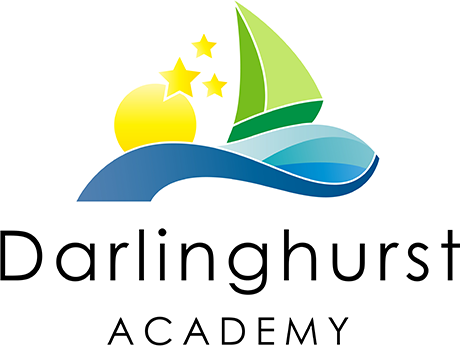British Values and SMSC
Design and Purpose
Why? How?
Our Academy values: Achievement, Belonging, Confidence, Determination and Excellence alongside British values: Democracy, Rule of Law, Individual Liberty, Mutual Respect and Tolerance of those with difference faith and beliefs are intrinsic in all we do. The curriculum design enables connections to the lives and heritage of our children and their community. We encourage our children to make positive contributions and an understanding of our community and wider society. Within our provision we exemplify British values through the teaching of general behaviours within the Academy. British Values have strong links to the Social, Moral, Spiritual and Cultural (SMSC) aspects of the curriculum and during our schools assemblies, Religious Education and PSHE lessons.
SMSC stands for Spiritual, Moral, Social and Cultural Development. It underpins everything we do as a school.
The spiritual development of pupils is shown by their:
- ability to be reflective about their own beliefs, religious or otherwise, that inform their perspective on life and their interest in and respect for different people’s faiths, feelings and values.
- Sense of enjoyment and fascination in learning about themselves, others and the world around them
- Use of imagination and creativity in their learning
- Willingness to reflect on their experiences
The moral development of pupils is shown by their:
Ability to recognise the different between right and wrong and to readily apply this understanding in their own lives, recognise legal boundaries and, in so doing, respect the civil and criminal law of England
- Understanding of the consequences of their behaviour and actions
- Interest in investigating and offering reasoned views about moral and ethical issues and ability to understand and appreciate the viewpoints of others on these issues.
The social development of pupils is shown by their:
- Use of a range of social skills in different contexts
- Willingness to participate in a variety of communities and social settings
- Acceptance and engagement with the fundamental British values of democracy, the rule of law, individual liberty and mutual respect and tolerance of those with different faiths and beliefs
The cultural development of pupils is shown by their:
- Understanding and appreciation of the wide range of cultural influences that have shaped their own heritage and those of others
- Understanding and appreciation of the range of different cultures within school and further afield as an essential element of their preparation for modern life in Britain
- Knowledge of Britain’s democratic parliamentary system and its central role in shaping our history and values, and in continuing to develop Britain
- Willingness to participate in and respond to artistic, musical, sporting and cultural opportunities
- Interest in exploring, improving understanding of and showing respect for different faiths and cultural diversity and the extent to which they understand, accept, respect and celebrate diversity, as shown by their tolerance and attitudes towards different religious, ethnic and socio-economic groups in the local, national and global communities.
At Darlinghurst, we wish to offer a curriculum that enables children (no matter what stage or background) to develop knowledge and skills to succeed in a complex world, cultivating a sense of humanity and belonging. Holistic success is central to our design, to increase effectiveness and improving educational excellence and life chances. SMSC and British Values are embedded within all our lessons and activities in school. We value and celebrate the diversity of all our pupils and the communities that we belong to.
Termly Reflections
When? What?
Autumn
We began using our new RE curriculum which has enabled our children to think more deeply about different religions, as well as furthering their respect for different religions and cultures. We celebrated religious festivals such as Diwali, Christingle and Christmas. At Christmas time, we invited parents into school to help their child make Christmas decorations using recycled materials. As part of our PSHE curriculum, we started the year by setting class rules and thinking about our roles and responsibilities.
In October, we commemorated Black History Month. Year 3 looked at the life of Sir Lentworth George Henry and created a fusion British and Jamaican flag. The children in Year 4 enjoyed writing a biography about Rosa Parks, really encapturing the message behind the legacy she left in the world. Year 5 were fascinated by the lives of Martin Luther King, Malala Yousafzai and Muhammad Ali and how they all stood up for their beliefs to help make the world a better place and provide opportunities for all. Year 6 wrote memoirs about the journey from Jamaica to England on the HMS Windrush. In addition, they learnt about other significant individuals in Black History including Katherine Johnson who worked for NASA in the 1960s and 1970s, calculating trajectories for spaceships.
In November, the children commemorated Remembrance Day by having a 2 minute silence across the school and learning about the significance of the day in class. Year 6 went on a trip to the Imperial War Museum.
This term also saw the introduction of the new focused topic, ‘News’ which enabled children to learn about what was happening across the globe, enabling them to learn about the fires in Australia, the general election in the UK and Climate Change.
Spring
As part of Eco-week, children were able to explore the debate behind some key moral and ethical issues through learning about littering, recycling and climate change. Visitors in the school like Wayne Dixon made them think about what they would do to change their actions.
In the Spring term, we introduced the focus topic, ‘How do I?’ which touched upon issues such as looking after our world, money, emergencies and internet safety, all of which contributed to our children’s social and moral understanding of the world around them. In addition, internet safety week enabled children to think about and debate important issues concerning websites, social media and bullying online.
What next?
Summer
We will be taking part in the VE Celebrations by asking our children to contribute some artwork for a special exhibition in partnership with the Portico Schools.
We also have two new focus topics, Global Dimensions. The global dimension addresses social, political, environmental and economic issues. Considering how they can affect these issues helps them understand that both action and inaction have consequences. This can help develop positive attitudes to the wider world and its challenges, and equip young people to make informed judgements and act with integrity.
Difference
What ?
Our children learn to be active citizens by ensuring their voices are heard and by bringing our school into the future through their social, moral and cultural development. They also use British Values as a basis to encourage skills of participation in a democracy. They develop the skills such as how to work with others, communicating their ideas and thinking critically. They gain the knowledge of what values are important to our culture and community, as well as a knowledge and respect of other cultures and religions. Our children are equipped to show a high level of empathy and emotional intelligence through these knowledge and skills so that they are well prepared for everyday life and a future outside of school. In a sense, we focus on the whole child so that they can be successful in what they do and contribute effectively.
Where? Who?
Having visitors into our school really have an impact on the children and how they view the world. As part of Eco-week, we had several visitors such as Wayne Dixon, who spoke about litter and Alicia Hogarth who talked to Year 6 about Climate Change. Kalma Kids visited Year 3 and Break the Cycle visited Year 5 to discuss bullying and emotions. Local college students delivered a play to Year 5 and 6 about bullying. We also had ‘Health for Life’ come and talk to parents about healthy packed lunches.
We have established links with ‘Magistrates in the Community’ who will be delivering sessions with our older children about how our legal system works sometime in the future.
‘Achieving Excellence Together’
Useful websites
https://educateagainsthate.com/parents/
https://www.saferinternet.org.uk/safer-internet-day/2020
A message from Mrs Powell , our SMSC lead:
SMSC is vital to a well-rounded curriculum as it is embedded in everything the children learn and do. These skills are vital for children to function within society. We follow and refer to British Values within our lessons to help children identify their importance in modern day Britain.
As part of developing SMSC I am always keen to hear from parents / carers who would be willing to share their knowledge and expertise with the children regarding their social, moral, spiritual and cultural development.
Please contact me at mrspowell@darlinghurst.co.uk
 Messages of hate can take many forms. Click here to find Q&A and resources to help you protect your child.
Messages of hate can take many forms. Click here to find Q&A and resources to help you protect your child.






